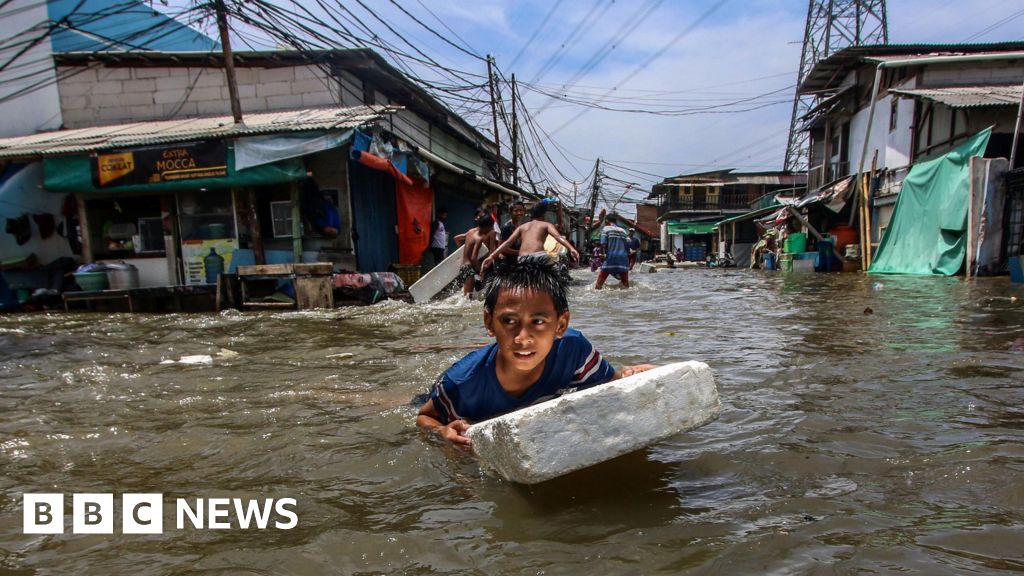The opening of the talks on 11 November was dominated by the election of US President Donald Trump, who will take office in January.
He is a climate sceptic who has said he will take the US out of the landmark Paris agreement that in 2015 created a roadmap for nations to tackle climate change.
“For sure it brought the headline number down. The other developed country donors are acutely aware that Trump will not pay a penny and they will have to make up the shortfall,” Prof Joanna Depledge, an expert on international climate negotiations at Cambridge University, told the BBC.
Reaching this deal is a sign that countries are still committed to working together on climate, but with the largest economy on the planet now unlikely to play a part, it will become harder to meet the multi-billion dollar goal.
“The protracted end game at COP29 is reflective of the harder geopolitical terrain the world finds itself in. The result is a flawed compromise between donor countries and the most vulnerable nations in the world,” said Li Shuo from the think-tank Asia Society Policy Institute.
UK Energy Secretary Ed Miliband stressed that the new pledge does not commit the UK to come up with more climate finance but it was actually a “huge opportunity for British businesses” to invest in other markets.
“This is a critical eleventh hour deal at the eleventh hour for the climate. It is not everything we or others wanted but it is a step forward for us all,” he said.
In return for promising more money, developed nations including the UK and the European Union wanted stronger commitments by countries to reduce use of fossil fuels.
Despite their hopes that the agreement struck at the talks in Dubai last year to “transition away from fossil fuels” would be strengthened, the final proposed agreement only repeated it.
For many nations this was just not good enough, and it was rejected – it will now have to be agreed next year.
Countries that rely on oil and gas exports reportedly put up a strong fight in negotiations to stop further progress.
“The Arab Group will not accept any text that targets specific sectors, including fossil fuels,” Saudi Arabia’s Albara Tawfiq said at an open meeting earlier this week.

